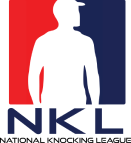Ad 00:06
This episode is brought to you by D2DU, the #1 online sales training platform and the door-to-door and direct sales industry. With over 200 interactive and industry specific videos, learn from the top 1% in the industry how to maximize sales in record time. Indepth training that covers all the skills you need to succeed in your industry. Go to https://d2du.thed2dexperts.com/ to enroll today, if you are in solar roofing alarms or pest control, then d to d u is definitely for you go to https://d2du.thed2dexperts.com/to enroll today.
Sam Taggart 00:47
So this is a Matthew Pollard. Welcome everybody to TheD2DExperts podcast and we have a couple announcements before I dive into this, we’ve got door to door con coming up, we just added a group bundle discount. So if you get five or more, it’s 10 10% or 10 or more. It’s 20%. So Matt, I’d love you to come by the way, we have January 8 and ninth being a door-to-door rockstar and coaching and training. We host an event I know you’re kind of new to our world. But we have David Goggins Bradley, john Maxwell, Tim story, Hal Elrod and 18 other amazing workshops I hope to see you there in January. And anyway guys, those that don’t know Matthew Poehler, he’s an author of the introverts edge, and soon to be introverts edge of networking. And it’s one of the top eight, Amazon bestseller books for a week. And you know, he’s been very interesting, interesting edge to the whole sales methods and sales styles because he writes it from the framework of an introvert, right? A lot of people are like, I’m not a salesman, I’m not a salesman, I think Matthew can probably say he thought that same thing. And now he started over five, multi million dollar companies. He’s coached over 3500 companies, and, you know, written multiple books now. And it’s a, it’s, it’s cool, because all these routes when he was 18, got into door to door sales. So a lot of his psychology and a lot of his framing, you know, he coaches, a lot of software companies now, he’s been able to really just take what you learned on the doors and apply it to other elements of business. So if you’re listening, this is gonna be a very good one, if you feel like you’re an introvert seller, and how you can also become the next Matthew Paul Pollard. So anyway, thanks for being on the show. Um, yeah, man. I’m excited to be here. Thanks for having me on. Yeah. So tell us a little bit about for those. I mean, I always get interest I interviewed another Australian dude. And I’m always like, what’s the word the door to door out like that, like out in a different country? You know, I mean, like, people like big knock doors out there to like, first off, like, that’s the thing.
Matthew Pollard 02:55
Yeah, it’s interesting. My ex manager, the person that was the general manager, I should say, the company that I first started out with, he actually moved to the US and started one of the big door to door companies selling electricity up here and did amazingly well. I mean, the market is, is very, very similar. I’d have to say that a lot of the Americans work much harder than a lot of the Australian door to door sales sales people from what I’ve heard, though,
Sam Taggart 03:16
so what are kind of industries that you’d find out in? out in Australia? Like, what what industry? Are there as an endorsement? Or? Well, yeah, like, it’s like, I know, charities, monnaies, vertiv, charities, huge charities, huge, but
Matthew Pollard 03:32
You know, really telecommunications, electricity, you know, the general consumable items, you know, things that we need that we can rebuild and stuff like that, you know, if all of that was deregulated A long time ago, so you know, Australia has all of that stuff. Solar was, you know, a lot of stuff is, is driven by a lot of the government fund funding subsidies as well. So you have things like solar, when we had the 2008 recession in the US, a lot of companies got into insulation as well, because the government funded getting all the houses insulated to, to make them more green. So there were a lot of, you know, doggerel stuff around that. But you know, there’s always lots of little things going on in the door or world people will still walk, you know, selling door to door specific products, additional services. You know, back in the day, people used to walk past selling Tony Robbins CDs and online and girl CDs and things like that. So I mean, these days, a lot of it is going to be, you know, the services that we use every day. Those are the things that sell door to door mostly, and you know, get the door to door salespeople, the best commissions as well.
Sam Taggart 04:33
That’s cool. No, it’s always interesting. I’m always curious, like, what’s going on? You know, we founded the door to door Association last year. It’s a nonprofit that’s helping kind of unite everybody together and push the needle to better, better practices, better credibility, better ethics, better unity between companies and reps and things like that. So I’d love to write a global thing. We were gonna make it the door to our socialism in America and I was like, No, this is a global thing Why would I put up America like no of the world? Like,
Matthew Pollard 05:04
The challenges are mostly the same? Especially? I mean, firstly, I’m Australia and New Zealand, very similar world to the American world. I mean, we tend to copy a little what the Americans do anyway. And you’re I mean, a lot of the the doctrinal challenges that we have a very, very similar, the, you know, a lot of the psyches and the way you sell is slightly different in Australia than then than the US. But you know, it’s funny American accent does doesn’t do too bad in Australia and an English accent doesn’t do too bad in Australia, just like an Australian accent doesn’t do too bad in the US.
Sam Taggart 05:35
Yeah, people want to listen to me like, oh, you’re different. I’ll talk to you. That’s exactly exactly right. So let’s fast forward. So you wrote a book, The introverts edge. And first off, why introvert? Like obviously, that’s a different kind of angle, the selling and kind of tell us about that book, and how you kind of started writing that where that all came from? Give me the backstory.
Matthew Pollard 06:00
Yeah, it’s actually interesting. So firstly, I didn’t want to write the book. And if somebody else was willing to write it, I wouldn’t have written the book that everybody that I spoke to in the sales influencer world when nobody’s gonna buy a book on introverted selling, right? Because who would want a book that’s, you know, on selling, if you’re an introvert, everyone, you know, in the introverted world, trying to avoid it? And I was like, Well, you know, I know a fair bit about marketing. And when there is an underserved market, like no, there are no books out there for introverted sales people. And there are literally 1000s out there for extroverts, or people that believe that every book is written for an extrovert, there has to be some people that were interested. But I mean, it came because I’ve been talking about the book needed to be written for so long that it was starting to get embarrassing that I didn’t just write it myself, because I mean, my backstory is, you know, a lot of people see me on on stage speaking at events, and they look at me as I am today, and they’re like, Oh, it’s easy for you, you know, you’re at your extrovert, you just got that natural gift of gab. And I think that happens a lot. Anytime you see someone that’s successful, we are introverts tend to project extraversion on them, right. And it doesn’t matter that Zig Ziglar was was introverted, or Jeb blunt is introverted. Like we again, we never asked those questions, because we just like to assume extroverted and we never think anything of it. So for me, I mean, my backstory is, you know, I had a reading speed of a sixth grader in late High School, you know, I had horrible acne. And, you know, luckily enough, I got diagnosed with this thing called erland syndrome. But basically what that means is I put on a funny pair of glasses that got called lenses. And miraculously, I can learn to read now I couldn’t read like everyone else, but I could start the process of learning to read. So you know, I hustled through, you know, high school to, and I got into the top 20% of my state. I mean, I was exhausted, I had no idea what I wanted to do. I was just, you know, and because of that, I just knew that, you know, if I hadn’t gone to university, I just, I wouldn’t have had that right mindset to push through. And I mean, two years of being seen as the slow kid horrible acne and you know, cut fall funding lenses didn’t exactly build my confidence up, either, right? There’s a photo showing my stage presentations of me with my sister’s wedding with horrible acne. And I’m like, there’s nothing I could do about this face. I literally give people two seconds, I warn them. I’m like, here’s the photo, click off and let’s move on. And everyone laughs And I’m like, Yeah, you’re literally getting two seconds. But basically, what happened is I took a job at a real estate agency. And I mean, I wasn’t the guy out selling, I was the guy in the back office doing data entry with the look on my face. Like, don’t speak to me. I’m here to find myself for the great face for phone sales. Oh, yeah, exactly. But still wouldn’t be doing the phone sales, right? Like, there’s no way like, I just wanted to just have a quiet job, where and you know, I would have been really happy with that job mate. Like, if what happened next didn’t happen. That is probably where I would be today. And gosh, I’m so happy what happened happened, but that I would have probably never known any better. But what happened was, my manager comes in about three weeks into that job. And he’s like that, I’m so sorry. But they’ve just decided to close down his office, you’re out of a job. And I’m like, I mean, this is a square at Christmas time. It’s like summer at the same time. So here I am, you know, we’re about to go on holidays. Like the whole country goes on holidays from the 20th of December to the 15th to the 20th of January. And I’ve got no work and there’s no way I’m going home to my dad who broke his back 80 hours a week, support the family and say sorry that I’m out of a job. So I pulled out the classifieds. And I literally looked for jobs, and with three jobs listed, and they’re all these things called Commission on the sales roles. And I’m like, well, I’ve got no option. So I just picked up the phone and I called all three and I got three interviews. I was pretty excited, you know, there was able to do that. And then I went to all three interviews and I got three jobs. And I was like, Alright, something’s funny here. And then you know, I remember going I accepted a job in b2b sales, you know, selling telecommunications. And you know, literally they gave me the job in b2b because they said I had potential but it was literally because I was the only person that came in a suit everyone else was just wearing casual. And it was the only suit I own. It was disgusting looking suit, but you know, it was what I had. But I remember going into my first day of training and my manager saying, you know, we just have this philosophy we throw man up against the wall. We See what sticks, which sounds great to realize you’re the mind right? So there I am five days product training, not a single second a sales training and I get thrown on this road called Sydney road in Melbourne, Australia. It’s like 1000 doors on each side. They’re all these like junky little stores. And I got to walk in the first door. And I’m like, no one’s actually told me what to do. I have no idea what to say. So I take a deep breath I walk in. And luckily, I was politely told to leave shortly after that I was sworn at then my favorite was always when people used to say, why don’t you just go get a real job. I mean, that was the only job I could get right? But door after door, this happens until I got to my 93rd door where I made my first sale. And I remember, I made I made about 70 bucks. And I remember thinking to myself, this is great. But I’m going to do this again tomorrow and the next day and the next day. And I mean, that wasn’t okay, I think a lot of the door to door sellers, people that are listening, they do one or two things, they either grind it out and they hustle through it though it’s a numbers game. It’s a numbers game, or they give up which is what a 10 to the 20 people in my training group did the next day. And what I did, it was different. What I said to myself is I’m like, Alright, he is going to suck if I have to do it this way. So I’m going to decide that sales is a system. So what I did is I went looking for it as well, like I could pick up a Brian Tracy Ziggler book. So what I did is I typed in YouTube’s sales system and all these videos came up. And I literally spent eight hours out in the field, applying what I learned and eight hours back home practicing weekends, I’d spent like 16 hours practicing and I just went on but I got better. You know soon it was like 78 doors and was 45 doors and it was 3118 nine, I got it down to three doors on average, I’d make a sale. And I remember it was about six weeks in my manager pulls me aside and I was having I was the quiet guy had passed my paperwork in downstairs, I go upstairs, I listened to all the boisterous sales people talk about how hard the market was getting. He’s like that we’re kind of blown away by this. We just got the National Sales Report. And it looks like you’re the number one salesperson in the company. Now that happened within six weeks. And this was a company that employs 1000s of salespeople. I mean, they call themselves the largest sales and marketing company in the southern hemisphere. So to go from being terrified to sell to being the number one. Now of course what happened though, is they went Oh, you’re a great salesperson you can manage. So they gave me a team. They all quit in 24 hours because I was a terrible manager. And so what happened was I taught myself how to manage watching YouTube videos and anyway got promoted seven times in a year ended up starting up my own business. Fast forward a decade I was responsible for five multimillion dollar success stories. But then when I got to the US, I started teaching people what I did to be successful in business. And I talked about differentiation, niche marketing, and then I before I got into sales, I’d tell my personal story. And I’d have all these introverts afterwards, come up and go. Now I’d no idea as an introvert that sales was even possible for me. And so I started telling everyone to write this book on introverted selling because with my reading issues, there’s no way I was going to do it. And then I ended up working with a ghostwriter. Right, so I, I worked with a client, you know, he was making 27,000 a year. And I literally took him from that. So within four months, he made $120,000. The next year, he made 200. And he was like, Matt, you’ve got to put this stuff into a book. So begrudgingly I was like, Alright, let’s do this. And we put together the book, you know, you later it sold 25,000 copies have been translated in 10 languages. And you know, it’s listed by book authority is the number two book ever written for introverts. So it’s been quite a journey, mate. But in truth, I should never have created the book, I should never been in sales, that you know, it was just luck, that kind of got me to where I am today.
Sam Taggart 13:23
So Woody, I love it. I love it. And I have like 12 you’ve like said words that I say and you’re from a different country. And it’s like, you’re speaking our language? No, man. So love it. Um, what do you what do you say to that guy? Because obviously, you manage and lead teams and built organizations. When a recruit sits in front of you, you know, you probably ended up being the guy throwing stuff at the wall and being like, you’re an inter, I’m an introvert, you could do this. I did it. You know what I mean? Like, but how do you have that conversation when the guy sits with you? And is like, Oh, I didn’t realize this was sales or commission only? I’m just not a sales guy. How do you how do you talk to that guy? Like, what things do you say to him? How do you change his tune? Or can you change this to like, what is the? Well, it’s
Matthew Pollard 14:08
Interesting. So I actually one of the things that I got promoted so much for is that I met my retention rate, for that matter up against the wall that I had no control over when I was working for the organization was much, much higher. And the reason for that is what I what I started to do is initiate product, not just product training, but sales training into the five days training that people had. But you know, the biggest thing is that when people say to me that they are not, you know, they’re not built to be salespeople. You know, I explained Yeah, you know, neither was I and what I discovered is that people have a false perception of what sales is, people think sales is about being able to just have that gift of gab and just be dynamic. So they walk in and somebody says something and they know exactly what to say. It’s actually not that it’s about making sure that they have a systematic process that leads to a sale and a lot of times you can really Make sure that you systemize out the way you create rapport, you can systemize out the way you tell stories, you when somebody gives you an objection you can reframe those into you can do what I call an objection handling question. I perfectly understand last thing I want to do is waste any of your time, however, and then move into a story. So right throughout the process, it’s something that you can systemize and practice. So when somebody says that, to me, one of the things that I would say is, you’re 100%, right? If you expect to just grab a product today and go and sell tomorrow. But if you’re willing to embrace a sale system, if you’re willing to spend time with me learning how to process it, how does take step by step through a sales process, which of course were willing to show you how to do the first thing you realize is actually not as hard as you think the second thing you realize is you don’t have to do any of those Bulldog closes and those that there’s pushy techniques that you see a lot of use car salesmen and insurance salespeople because they shouldn’t be doing that anyway. And the third thing you realize is that door to door sales is by far the most important step in any career success. Because if you can’t sell yourself, good luck getting a big job one day, if you can’t sell yourself, good luck starting a small business. I mean, I think of in the book zero to one, they say that if your business just consists of just you and your computer, look around if you don’t see any sales people, you’re the salesperson, right? I mean, that’s why in the book, Rich Dad, Poor Dad, it’s like if you even if you have to go and sell Amway, go sell Amway. Well, door to door sales is like trial by fire. But in truth, if I had to do 93 doors every single day, to get one sale, there was no way that I would be okay with that. But if you can make a sale every three days, it’s pretty fun. So if you learn a system, you’ll do amazingly well. And in truth, total sales is one of those jobs that you can make phenomenal money straight out of high school, and so few careers off of that promise.
Sam Taggart 16:49
I love that. So it’s interesting when you when you lay it out to the introvert, I think here’s where the extrovert doesn’t correlate the two, an introvert tends to like things kind of in their order in their system. It’s like I do X, Y, Z, and I get this like, and I think a lot of like, my problem is sometimes I’m like, I don’t say the same thing I got, I just want to like wing it. I just want to make a friend I want to connect, I want to talk I wanna throw down. Yeah. And I think if you were to simply say, guys, can you say this? Can you say this? Can you say this in this order with this tone? Can you tell the story with a beginning, middle and end and have a you know, some? Can you learn how to tell a story the right way? And, you know, if I told you the story, can you repeat it and said the way I said it? Well, yeah, I could do that. Okay, then why couldn’t you sell like, I think the way that you just broke it down and like, it can be learned. And it is a system and there’s a steps to it. And you can be trained, I think like you said, is people have this wrong mindset or frame around direct sales or, you know, their, their personality associated to it. And I love I love how you frame that. So thank you. So
Matthew Pollard 17:59
What I’ll go one step further, though, if you don’t like what I’ll say is an introvert will actually outsell an extrovert when they do that…
Sam Taggart 18:06
And I agree. I would agree. 100%.
Matthew Pollard 18:11
Yeah, and a lot of people don’t know that, though. I mean, they you know, it’s not new stuff. I mean, Brian Tracy, who’s an extrovert will tell you the top 10% of all sales performance, have a plan presentation, the bottom 80% just say whatever comes out of their mouth. Well, if you think about planning, I mean, that’s an introvert strength, right? The extrovert loves to winging it. So they’re going to move away from plan process. But of course, the reason why everyone thinks an extrovert does a better job is while the top 10% is probably mostly introverted. The rest of the top of the groups are all extroverts love bragging about how great they are. Exactly. So it’s a huge issue. But you look at you know, Jeffrey Gitomer, who I know is a friend of yours and he’s a friend of mine. I mean, he’s an extrovert, but he gravitated to process drop Brian Tracy gravitated to process. So the thing I would always say is that a process will always win over somebody that’s winging it. Now an introvert and an extrovert can both learn a process and a system, but an extroverts benefit of being able to wing it when they don’t have a process is an advantage at the start, but a disadvantage when they’re trying to perfect the art. The great thing with an introvert is let’s face it, we kind of suck at selling without a plan process. But with a plan process, we kind of hold on to it for dear life, because without it, we’re gonna have a really tough time. And because of that, it almost becomes a discipline for us that we just keep trying to perfect. And you know, plan presentations will always win out. And if you’re focused on always delivering the same thing and changing one thing at a time to continually improve it, eventually you’re going to be the best in your company, you’re going to be the best selling the whatever item service or product that you’re actually trying to represent.
Sam Taggart 19:49
Like that. like that a lot. Do you? You know, so we put like we’re a training company. So we actually like I bought guys right now in Atlanta. I have a guy in Charlotte That are filming companies processes. So like one of the things that we do is we help people put a training system together so they can duplicate themselves more. Because, you know, I watch over and over and over again. And that’s like how my company started. I was like, man, there’s like no training, like, I go to big companies, and they’re just like, Oh, yeah, he shadowed me for a day. And then he kind of goes out there and figures it out. And, you know, and they don’t have a way to duplicate that process, or, you know, cater to the introvert, that’s like, just give me the playbook and like, I’ll do it. You just don’t have any resource or playbook for me to do and you’re expecting me just a witness. And that is not in my DNA. And I found that the more we’ve helped systematically, you know, we consult a lot of businesses. And there’s one on this Instagram Live right now, Jefferson, and he was in my office yesterday, it’s a big window company. And he was like, Can we map out the training system better, because he felt like there was a bunch of holes in it. And I was like, Okay, let’s fill that in. So that worst case scenario, you have a crappy manager that doesn’t want to spend any time with the sales guy, you at least have your online training platform and resources to give your guy to where if he wants to take it upon himself. And the introvert tends to want to take it upon themselves. To learn it in study it like you said, they tend to be a top higher performers, once they, you know, maybe have a slower start. But they have a more consistent long term, because they’ve said, I understand why I do what I do, not just man, that one worked all of a sudden, I don’t know what happened. But it just, did you combine this week? I’m just gonna fire her. It’s like, no, I can tell you want. And that’s the system, right?
Matthew Pollard 21:32
So that I mean, what’s what’s interesting about that is a lot of people will like you say to an extrovert, why are you having a bad week this week, and it could be because they had a fight with their girlfriend, or their boyfriend, or they had an argument with their parents, or, you know, they just got a more, you know, they just had one Commissioner, the salesperson, super extroverted. And he’s like, he went from making the most amazing level of sales to almost nothing. And it was because he bought a brand new car. And he was stressed out about the payment that he had to make for the car every month. I mean, he learned so much more than that, it was never a problem. But this was his first, you know, luxury vehicle. And he was like freaking out about that. And just that playing on his head had such a substantial effect. I mean, for me, I could have just come out of the world worse situation. And because in a lot of ways, I script what I say and plan what I say, you know, day after day, I’ll deliver the exact same outcomes. And now by the way, I know you just use the word script. So a lot of people are going to go Oh, no script. Well, firstly, all the people you watch on TV are reading from scripts as well, every movie you’ve watched. And the reason why they sound so natural and comfortable is not because they’ve picked up the script. And they’re reading it right now. Or they read it yesterday, and they’re delivering it today. It’s because they’ve rehearsed it, they’ve practiced it, they’ve embodied the part. Now, here’s the thing that I find with especially commission only sales roles, is that when you hire someone to commission on the sales role they want to go out and they need to start making money from tomorrow. Well, the question you have to ask is, do you want to suck at making money like for me, I could have made pretty much no money like $70 a day for forever as an introvert, and sometimes I’d be lucky and I maybe get a sale every $56. And other days, it’d be 114. Or I could have spent six hours practicing the process. So eight hours a day practicing the process over the course of six weeks. Now, of course, it was a terrible time. And I wouldn’t wish that six weeks on anyone. But now I’ve benefited from it my entire life. So when you think about as an organization, whether it’s worth having a plan presentation, scripting out what you say, firstly, anyone that says, Oh, you know, I read that script, but you know, I prefer to do it my way. What they’re saying is I’m too lazy to learn to plan process, because plan process is going to deliver great results, and they’re all good. But the way you say it doesn’t really work for me. I’m like, Okay, why don’t you go away and learn that first. And then if you want to change it, we can talk about that. As soon as they learn it. They’re like, Oh, wow, you know, it delivers such great results. Why would I change it? So for me, any organization needs a plan presentation. It’s funny how many small businesses that I work with, and their dream is to hire a sales guy or a height. So hire a sales girl and say, you know, you go sell for me, and I’ll just do the business thing. And it’s really interesting, but I’m like, you gotta hire someone, you’re gonna pay him $75,000 $150,000 a year, six months from now, they The only person they’ve sold is you. They’ve told you about their amazing pipeline, they told you everything that’s going on. And then you realize there’s nothing there, no deals have been made. So even the smallest micro business needs to create, go out and learn sales themselves, then turn it into a full sales process themselves, write out exactly what they say, then hire someone to learn this system for selling it. And then that way, firstly, you’ll know sales. So you won’t buy into all these excuses, that won’t be realistic. And then secondly, you will make sure that they’re delivering a consistent result. And then maybe if they’re a better salesperson, then you deliver a better result, but at least you’ll get them to that baseline and that’s the important thing, especially when you’re inducting new people, is most people they don’t even have forget about a whole sales script. They don’t even have a story. playbook. So you’ve got these people with no experience, and they’re just throwing out jargon about their products, and it’s miserable for them. But it’s also horrible for your results. So just getting somebody one of the things that I do for a lot of big tech companies is, you know, they’ve got all these jargon based explanations. And I’m like, okay, you need stories, oh, we tell stories. You know, they’re always customer wanted this. So we gave it to them. And we create what I call the three story system. So we’ve picked one sales play, we look at the three major problems that the average buyer would have, that our product solves. And then we look for three real people. So if if you’re listening, and the marketers are the ones that control that sort of stuff, you need to bring them into the dialogue. Because what you need to do is understand that if you know three problems, you can tell a story about each one of them. If you get three common objections, you can have a story of a customer that had that objection decided to trust you and got an amazing outcome. Now, when I say story, I don’t just mean customer wanted this. So we gave it to them. I’m talking about stories that you’ve well structured that become more like the story of how you met your partner. You know, at the start, they’re a little bit bulky, but you you there were parts that you’ve you know, got rid of because people didn’t enjoy them. There’s parts that you know, embellish a little bit more, you know, they’re more like theatrical masterpieces that when a customer listens to it, they’re like, Oh, I need this, or Oh, he’s totally right. Now stories have the power to short circuit the logical mind. So you can speak to the directly to the emotional mind. So when you get an objection, when you’re cold calling, if you tell a story they go from this guy’s been talking for too long, can I get him out? Can I get him off the phone? Or can I get him out of my office. So Oh, storytime and they just listen. Also, people remember up to 22 times more imbedded into a story than they would from random facts. And more importantly, especially for introverts, it activates the reticular activating system of our brain, which means our brains actually synchronized. So if you struggle to foster real rapport, initially, if you tell a story, that’ll create artificial report that introverts are great at turning any report into a really deep enriched relationship, the extroverts have an advantage of striking up rapport straight away. But if you leverage story, as soon as you get into a store, your brains will synchronize. And from that point onwards, you’ll have a much bigger advantage than your extroverted counterparts.
Sam Taggart 27:14
That was so gold nugget, if you’re listening to this, that was the nugget of the day, in my opinion. So thank you that I couldn’t agree more I found, you know, obviously, you’ve heard you know, stories tell or people tell stories sell, right. Like, it’s kind of that concept of I love how you said it short circuit, it’s short circuits, the logical mind and go straight to the emotional mind like that. Like, I never looked at it like that, where, you know, so many people are just trying to back them up on people. Like, here’s what my thing does, versus me pull out my brochure and show you it’s even worse than that most. Yeah, exactly. And I watch him go through his PowerPoint. And I’m just like, you realize that I think I took a middle nap in the in somewhere in between in your presentation, and then
Matthew Pollard 28:02
The customer doesn’t care. Like they’re like, “well, none of this is relevant to me. None of it, I’m going to remember.” All they want to know is, am I going to lose my job for making this decision? And then you know it all going wrong? Or can you tell me Give me an example of how it works. I mean, you can explain the product and give a testimonial at the same time through a story. And one of the things that I think will help is a lot of the people that are like on the fence about whether they need to fully document their sales process. What I always suggest is document your stories first, and make sure that your sales people are just using one of those stories in every sales activity. And what you’ll have is such a skyrocketing effect to the closure rate, your sales cycle will shorten. And you’ll find that even when you’re onboarding new people, the ability to turn them into effective members of your team will happen much, much sooner. As soon as you deliver that ROI, just from that small initiative, then you can look at extending it to a greater sales process that gives you a way to baby step in, you know, we worked with a commercial real estate company that literally six months in it was the three principals and they decided to grow by hiring a bunch of, you know, 20 year old, you know, people to get into the industry. And it was really interesting. After six months, he said, you know, volney, the owner said, we really have two groups of people. We’ve got the introvert, the best characterized by Thomas and now Thomas has been working with us for six months. In his own words, he’s only made one appointment that was borderline useless, right? Can you imagine me and Thomas would be horrible. He’s that’s actually a best salesperson compared to the extroverts that have no idea what they’re doing, but they’re just getting hyped up on coffee hammering the phone, and they’re bulldozing people but the C level executives are just hanging up. We’re just getting middle managers that don’t want the appointment, but they can’t make a decision either. So we get there and they’re like, why are you wasting my time it’s bad for the brand. They asked me to come in and give them a structure for getting people to get more quality appointments. So what I did is I taught them the objection cushion, which is you know, when they get an objection I perfectly understand Last thing I want to do is wasted your time, however, right, I listened, I understand that you’re busy However, now the word but is not the same. Right now for those people that for those blokes listening, that are married, go home and say do look beautiful in that dress button, see what happens, right? It’s not gonna work out for you trust me, the word however, is an additional term. So it’s much, much more valuable, right? And it means so when you say to a customer that you say, I perfectly understand last thing I want to do is waste any of your time, however, have you considered this other piece of information, it’s an additional term. And what I got them to then do is to tell a story, but a much more robust story with emotional elements to it about a customer. And we can talk about what the key elements of the story are, that might be helpful for you for your audience in a second, but the what they did is they then started delivering stories instantly, they started to realize C level executive would normally give them eight seconds on the phone before their brain would go no thank you and hang up. As soon as they got into a story. It was like the, the situation just shifted. And they got the customer on the phone for an average of two minutes and 35 seconds. And then all of a sudden, I mean, you imagine as a as a cold caller, getting somebody to listen for two and a half minutes, over eight seconds, massive difference and what you can do in that time, but also at the end, you know, if you’re saying, Oh, you’ve got this problem, or you’re these things will help you overcome that the question becomes, will it or will it not, and their logical brains trying to decipher that. But when you tell a story, it’s like, well, I can’t disagree with that story. It’s an experience that that person had it worked for them. But then the moral of the story is, if it worked for them, they’re just like you so we can get you to the same outcome. So short circuiting the logical mind speaking directly to the emotional mind, which by the way, doesn’t interpret facts from fiction. So it interprets all the details as fat as as factual because when your emotional minds listening, it’s just trying to determine what the moral of the story is. And then having them remember the amount of times I used to have reps that, you know, we get customers call up later. And they’d be like the customer. The sales rep said this this this? No, I didn’t say that. He just doesn’t remember what I explained. And like he didn’t tell the story, did you? And you can pull it out instantly. And they’re like, well, there’s no way they’re going to remember it. If I tell a story might really well let’s let’s test that out for a second everyone listening in recite three random items. Think about it. Chairs, porridge, and beds. Now don’t write those items down. But a year from now, I want you to recite what those are just set a calendar invitation and remind yourself what those items are. No one’s gonna remember it right. But if I said Goldilocks and the Three Bears, you know, she sat in the chair, she ate the party, she slept in the bed, right? Even a story you probably haven’t heard in a long, long time. The reason for that is we tend to attach detail to the chronology of the story. And therefore it becomes more tangible and more real to us. So not only are they going to stay on the phone and listen to us more, they’re actually going to remember what we said and feel like they fostered a stronger relationship because of it. But when I used to sell telecommunications, door to door, I used to sometimes smile when I go in and I’d see their desk and they’ve got 10 other brochures sitting next to them. Because I knew that they’d Remember what I said more of what I said, than all those other 10 reps combined, because they were brochure sales people they saw with facts, and I just walked in. And as soon as I got my chance, I told one of my stories, and then bang was straight into a deal.
Sam Taggart 33:17
I love that. I literally say the same motto, like I don’t care if I’m the 10th guy, I’m going to be 10 times better than the other nine guys, you know, like, because I swear there’s so many salespeople out there that are so badly trained or just not trained, or just not like they don’t listen to what we just talked about. And they don’t think that it’s important. So they just keep doing what they’re doing. But just because you’ve been selling for five years doesn’t make you good. You know, I mean, it just makes you been selling.
Matthew Pollard 33:48
I mean, I can make someone tell like literally what we did, you know, and we’ve done this for a couple of big tech companies where we write three stories, and we give them to the new people. And we get them to go out and they’re out selling some of the people who’ve been doing it 510 years, because for the first time their customers actually get what they’re talking about. So I mean, with one story like the guys that Callie has, we gave him one story that made them sell. I mean, no one wants to buy commercial real estate of a kid. But if they tell a story that looks like they’ve got makes them look like they’ve got 30 years experience, it’s transformative. Now, by the way, for the people listening that have just started their commission only jobs. They don’t need to be your stories. I mean, you weren’t, you’re selling someone else’s product, right or someone else’s service. So all you’ve got to do is change the I worked with someone so we worked with someone and you can inherit any of the stories from any of the high performers, anyone that’s delivered the product, because you’re representing somebody else’s brand. But when I talk about stories, I want you to really hear me when I talk about this the stories that most people talk about, they talk about customer one of this so we gave it to them. You know, I remember when I work for a big billion dollar tech company and I entire to write a story for them because what I agreed to do is tell a story from stage like I worked for their organization, right? So I’d say so what does a good story look like? And then I would Tell this three and a half minute story complete with this emotional roller coaster that went through it. And then at the end, I’d say so Who here thinks I work for? I’ve worked for your organization for at least 10 years, like everyone put their hands up and like, no, I actually wrote, I actually interviewed for this story six weeks ago, I wrote it last week, I remembered it yesterday. And now I’m delivering it today, if I can sound like I’ve got this much experience, I mean, it was complete with industry, acronyms and everything. Because cloud based technology is super complicated. But it didn’t sound complicated in this story, which is why it was tangible to the guy buying it because they don’t want to understand the tech, they just want to know what’s going to work, right. But for me, when I was doing this, I literally interrogated these six guys, for literally 45 minutes. And at the end, I told them the story back and like 45 seconds, like, how did you do that? And I’m like, well, it’s the story structure that I’m going to be teaching you in a couple of weeks. But I said, there’s some things I don’t know. Like, firstly, you keep calling the person, the CTO, like, helped me understand the CTO. Does he have a name like yet, David? And like, why don’t you mention that? Because I mean, I can’t feel a CTO his plight. But when you talk about David, I can feel it all. But secondly, let’s ask Let me ask you another question. Why did they want to go to the cloud in the first place? And he’s like, What do you mean? I mean, we’ve been I said, You’ve been chasing them for years. But all of a sudden, they decided they want to go to the cloud. Why did they decide to go to the cloud? Now? They didn’t know the answer. So they had to go away and figure it out. Turns out this was a government organization. And it was a cloud based company that sorry, it was a it was a government organization that kept everything in their server farms. And they’re like, No, you know, what, if it ain’t broke, don’t fix it. Well, the server’s crashed just before Christmas, they couldn’t run payroll 1000s of staff biggest spending season a year they couldn’t run pay payroll for anyone. And they had to keep all their IT team working over Christmas to get everyone paid before New Year’s Day. So he ruined Christmas for his entire team. And there’s probably other people that couldn’t afford to pay their rent. During that time. He vowed never to be in that situation again. So we moved him to cloud and actually got a promotion Afterwards, he was worried about losing his job. Because he handled it so well and did the hard work. He got a promotion because of the fact that it was done so well, because this organization handled it so effectively. So you think about a story. It’s not we had a customer that wanted to go into the cloud, we got him to the cloud, it was like David constantly said, No, if we got an objection, like, no, it ain’t broke, we’re not gonna fix it. We’re, we’re good with this. Well, David thought the same thing. So I perfectly understand the last thing you want to do is wasting your time. One thing I do want to say to you is that we had many people that have said that actually, David’s a great example, let me explain, you know, he thought everything was fine. It was only the day before Christmas, when they were going to run payroll and everything crashed, that he changed his mind. Let me explain further. And then you get to the outcome of that, how you held their hands for the whole process how great the technology is. So while I totally understand where you’re at right now, and the last thing I want to do is push you to do something you don’t want. This ain’t broke, don’t fix it mentality may not be the right choice. Take a second to really think about that. Because I’d hate for you to end up like David.
Sam Taggart 37:58
It’s good. Good. I love it. Well, Matt, we got to kind of wrap up and wind down I don’t think anybody wants to but I, I appreciate this, this is a qualifier, you didn’t hold back. So that was That’s awesome. I like getting the actual, like meat and potatoes in these podcasts. And I don’t like just telling stories about how you, you know, are so cool and whatnot. And I like to get some tangible takeaways. So hopefully those listening and watching gotten some good value from this. You know, they can find you can find Matt at Matt Pollard, speaker on Instagram or the introverts edge, introvert edge calm. Go check out a book guys. He’s coming out with a new one. I mean, go register for that. And I definitely recommend, you know, any sales books that we can get our hands on. I know we that are so before I you know, I was asked as one last question. But you know, obviously, there’s a lot of salespeople, owners management was needed as he ran and recruited and worked with a lot of direct sales companies. What’s one piece of advice that you’d give our space? You know, if you’re, if you were to be able to speak with all industry, like, what, what’s one piece of advice? Absolutely.
Matthew Pollard 39:09
So I think that there, the major thing that I would suggest, is stopped assuming just because they’re an introvert that they can’t be the top performer. I think a lot of people when they’re hiring, they just accept subpar performance from any introvert because they quiet right? They’re not out with the there. And I think that has to stop. I mean, as I said earlier, Zig Ziglar was an introvert. Imagine if you had a zig ziglar working for your company, and you’re all he’s just quiet, don’t worry about training, that guy will just focus on the extroverted guys. Right? So HR needs to understand that I mean, every introverts and extroverts we both have our burdens to bear. Some might say that extroverts need a lot of help list learning to listen and being more empathetic. But the difference is, a lot of times we’ll send people to training to learn how to do that because we know that those are learnable skills. It’s this gift of gab rubbish that constantly gets in the way of introverts believing that they can and organizations spending money I’m actually training those companies. So what I would suggest that everybody does. I mean, my publisher hates me when I say this, but you don’t need to buy my book. If you go to the introverts edge calm, just get your sales team members to download the first chapter. And you know, an HR, get them to download the first chapter as well. That’ll help the sales people overcome their hurdle towards thinking that they can sell and HR realize that introverts can be amazing salespeople. And then also what I do is I outline the first seven steps of a sale. If you do nothing more than just look at the the seven steps put what you currently say into that you realize that there are some things that don’t fit. That means you shouldn’t be saying that to customers, it shouldn’t be said, and then you’ll realize that there are some things out of order and some big gaping gaps. If you do nothing more than fill those gaps and put it in order. You’ll double your sales in the next 60 days. And if you’re on my website, checking that out, you can also download the first chapter of my new book The introverts edge to networking at the introverts. edge.com forward slash networking. Well,
Sam Taggart 40:58
thank you so much for your time. And being on the show. I love finding hidden gems, like you. You know, you come from a totally different atmosphere than we do. But you’re part of the tribe. So I love it. So thank you so much. And I hope to see you in January. I mean, I think there’s some stuff we could probably do together. So sounds like a great conference. I hope so too. And thanks for having me on.























